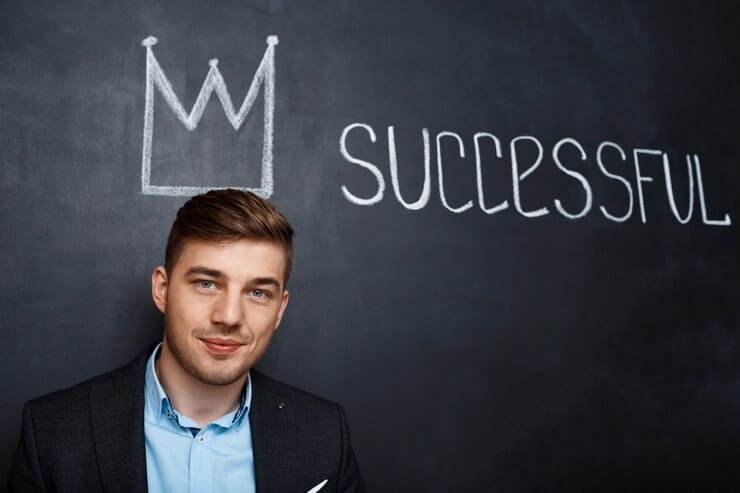In today’s fast-changing job market, employers look for more than just technical skills. They want candidates with strong soft skills too. Soft skills include things like how well you work with others, communicate, and solve problems. A Bloomberg report shows that many new hires lack these important skills.
Training in soft skills can really help you get ready for a job. It improves how you communicate, work with others, and solve problems. This makes you more appealing to employers. Schools like American Heritage focus on both academic and soft skills, knowing they’re key for success.
Key Takeaways :Soft Skills In Education
- Soft skills, such as communication, teamwork, and problem-solving, are essential for career success, going beyond technical knowledge.
- Employers place high importance on soft skills, as they enable individuals to adapt and succeed in the workplace.
- Educational institutions are recognizing the importance of developing soft skills alongside academic excellence.
- Soft skills training can significantly boost job readiness and make candidates more attractive to employers.
- Effective communication, teamwork, and problem-solving skills are crucial for success in various tech careers.
Understanding Soft Skills: Definition and Core Components
Soft skills are personal qualities that help us get along with others. They include things like communication, problem-solving, and time management. Unlike hard skills, which are specific to a job, soft skills are useful everywhere.
Key Elements of Soft Skills
Soft skills are crucial for success in school and work. Some important soft skills are:
- Communication: Being able to share ideas and listen well.
- Teamwork and Collaboration: Working well with others and helping the team.
- Critical Thinking and Problem-Solving: Finding solutions to problems.
- Adaptability and Flexibility: Being open to change and learning new things.
- Time Management and Organization: Managing tasks and staying productive.
- Leadership and Initiative: Taking charge and inspiring others.
Difference Between Hard Skills and Soft Skills
Hard skills are specific to a job and can be measured. Soft skills, on the other hand, are more general and useful in many situations. Hard skills come from formal education, while soft skills develop through life experiences.
Employers look for people with both hard and soft skills. This mix is key to success and growth in a company.
Impact on Personal Development
Developing soft skills helps in both work and personal life. Skills like emotional intelligence and empathy improve relationships and decision-making. By focusing on soft skills, you can open up new opportunities and achieve personal and professional goals.
Soft Skills In Education: Building Future-Ready Students

Schools are now focusing more on soft skills, like creativity and communication, along with technical skills. Research shows that training programs can improve these skills in students. By adding soft skills to the curriculum, schools help students learn these important abilities.
But, many business students don’t see the value in soft skills. This leads to a lack of these skills when they start working. Programs like the ASVAB Career Exploration Program help by giving students tools to understand their strengths and interests.
Training in soft skills can boost students’ grades and graduation rates. It also helps in math scores and completing assignments. These facts show how crucial it is to focus on soft skills in education.
“Soft skills are a 169% stronger predictor of academic achievement than IQ score.”
Now, national and state standards include soft skills in career education. This shows how much these skills are valued. It helps students highlight their strengths when applying to college or for jobs.
Teachers need help to teach soft skills. They need tools like rubrics and role models. Resources from McGraw Hill for CTE educators are very helpful. They offer materials to make teaching soft skills easier.
By focusing on soft skills, schools prepare students for the future. This approach helps students succeed in their careers and personal lives. It’s a key step towards their success and the improvement of society.
Essential Soft Skills for Career Success

In today’s fast-changing job market, employers value soft skills as much as technical skills. Skills like communication, problem-solving, and leadership are key to career success.
Communication and Interpersonal Skills
Good communication is the base for successful social interactions and sharing ideas clearly. Strong interpersonal skills help professionals work well together, build trust, and handle complex work situations. In remote or hybrid work, engaged communication is crucial for a positive work culture.
Problem-Solving and Critical Thinking
Problem-solving and critical thinking are crucial in any career. They help individuals face complex challenges, adapt to changes, and find new solutions. In tech, where unexpected problems pop up, these skills are as important as technical skills.
Leadership and Team Collaboration
Leadership and teamwork are key for career growth. People who can inspire and motivate others, and value different views, are in high demand. Team problem-solving, where everyone uses their skills together, drives success.
As the job market changes, the need for professionals with both technical and soft skills will grow. By focusing on communication, problem-solving, and leadership, individuals can set themselves up for long-term career success.
“Soft skills are the secret sauce that helps professionals stand out in the job market and thrive in their careers.”
– Jacki Craft, Chief People Officer at TimelyCare
Developing and Enhancing Soft Skills in Professional Settings
Soft skills are key for career growth and making you more appealing to employers. Mentorship is important for career development, offering more than just technical knowledge. To grow in emerging tech careers, take part in workshops, group projects, and mentorship.
The University of Calgary says good soft skills training includes communication, teamwork, and problem-solving. Developing both soft and technical skills is crucial for success in today’s job market. It helps you reach your career goals.
Workshops and mentorship programs help improve your people skills, adaptability, and critical thinking. These are vital for the modern workplace, teamwork, and leadership. Adding soft skills training to your professional growth can lead to better career opportunities and success in a fast-changing job market.
Also Read : Top 10 STEM Activities To Boost Critical Thinking Skills
FAQs
Q: Why is teaching soft skills important in education?
A: Teaching soft skills is important in education because these skills, such as communication and conflict resolution, are crucial for personal growth and academic success. They help students collaborate effectively and navigate interpersonal relationships, which are essential in both educational and professional settings.
Q: How do soft skills in higher education impact students’ career prospects?
A: Soft skills in higher education significantly impact students’ career prospects by equipping them with the ability to communicate, collaborate, and resolve conflicts in the workplace. Employers often seek candidates who possess these skills, as they are critical for success in future careers.
Q: What is the importance of soft skills in the workforce?
A: The importance of soft skills in the workforce cannot be overstated. Soft skills play a vital role in enhancing teamwork, improving communication, and fostering a positive work environment. They complement hard skills, making employees more effective and better equipped to handle diverse challenges.
Q: How can students develop soft skills during their education?
A: Students can develop soft skills through various activities such as group projects, presentations, and extracurricular involvement. These experiences provide opportunities for students to practice critical skills like active listening, teamwork, and effective communication, which are essential for their future careers.
Q: Why is assessing soft skills more challenging than assessing hard skills?
A: Assessing soft skills is often harder to measure than hard skills because they are less tangible and more subjective. While hard skills can be evaluated through tests and assignments, soft skills require observation of behavior and interactions, making them more complex to assess accurately.
Q: In what ways can higher education institutions promote soft skills?
A: Higher education institutions can promote soft skills by integrating them into the curriculum, providing training sessions, and emphasizing their importance in academic and professional contexts. This approach helps create a well-rounded education that prepares students for real-world challenges.
Q: What are some examples of crucial soft skills that students should learn?
A: Some crucial soft skills that students should learn include communication skills, conflict resolution, teamwork, adaptability, and social skills. These skills are transferable across different aspects of life and are essential for achieving success in both personal and professional realms.
Q: How do soft skills complement hard skills in the workplace?
A: Soft skills complement hard skills in the workplace by enhancing an employee’s ability to apply technical knowledge effectively. While hard skills provide the necessary competencies for specific tasks, soft skills are essential for collaboration and communication, making employees more effective and well-rounded.
Q: What role do soft skills play in personal growth and academic success?
A: Soft skills play a key role in personal growth and academic success by fostering effective communication, teamwork, and leadership abilities. These skills help students navigate academic challenges and build meaningful relationships, contributing to a well-rounded education and better overall performance.
Q: How can educators emphasize soft skills during the teaching process?
A: Educators can emphasize soft skills during the teaching process by creating a supportive learning environment, encouraging group work, and providing constructive feedback. This approach helps students recognize the value of soft skill development and prepares them for future interactions in their careers.
Source Links
- https://www.asvabprogram.com/media-center-article/Student/soft-skills-for-career-development
- https://pmc.ncbi.nlm.nih.gov/articles/PMC10550096/
- https://blogs.uoc.edu/mel/soft-skills-and-their-importance-in-higher-education/
- https://joinhandshake.com/blog/students/soft-skills-examples/
- https://www.investopedia.com/terms/s/soft-skills.asp
- https://www.theforage.com/blog/basics/what-are-soft-skills-definition-and-examples
- https://thelearningcounsel.com/articles/why-you-should-care-about-developing-soft-skills-in-your-district-and-what-to-do-about-it/
- https://www.edsurge.com/news/2024-11-20-why-soft-skills-matter-more-than-ever
- https://www.avanse.com/blog/7-important-soft-skills-for-students-to-be-future-ready
- https://infonomics-society.org/wp-content/uploads/ijcdse/published-papers/special-issue-volume-2-2012/Importance-of-Soft-Skills-for-Education-and-Career-Success.pdf
- https://timelycare.com/blog/class-to-career-essential-soft-skills-every-college-student-needs/
- https://www.marshmallowchallenge.com/blog/enhancing-the-classroom-mastering-soft-skills-in-teaching-for-effective-education/
- https://www.linkedin.com/pulse/importance-developing-soft-skills-education-glpqc


